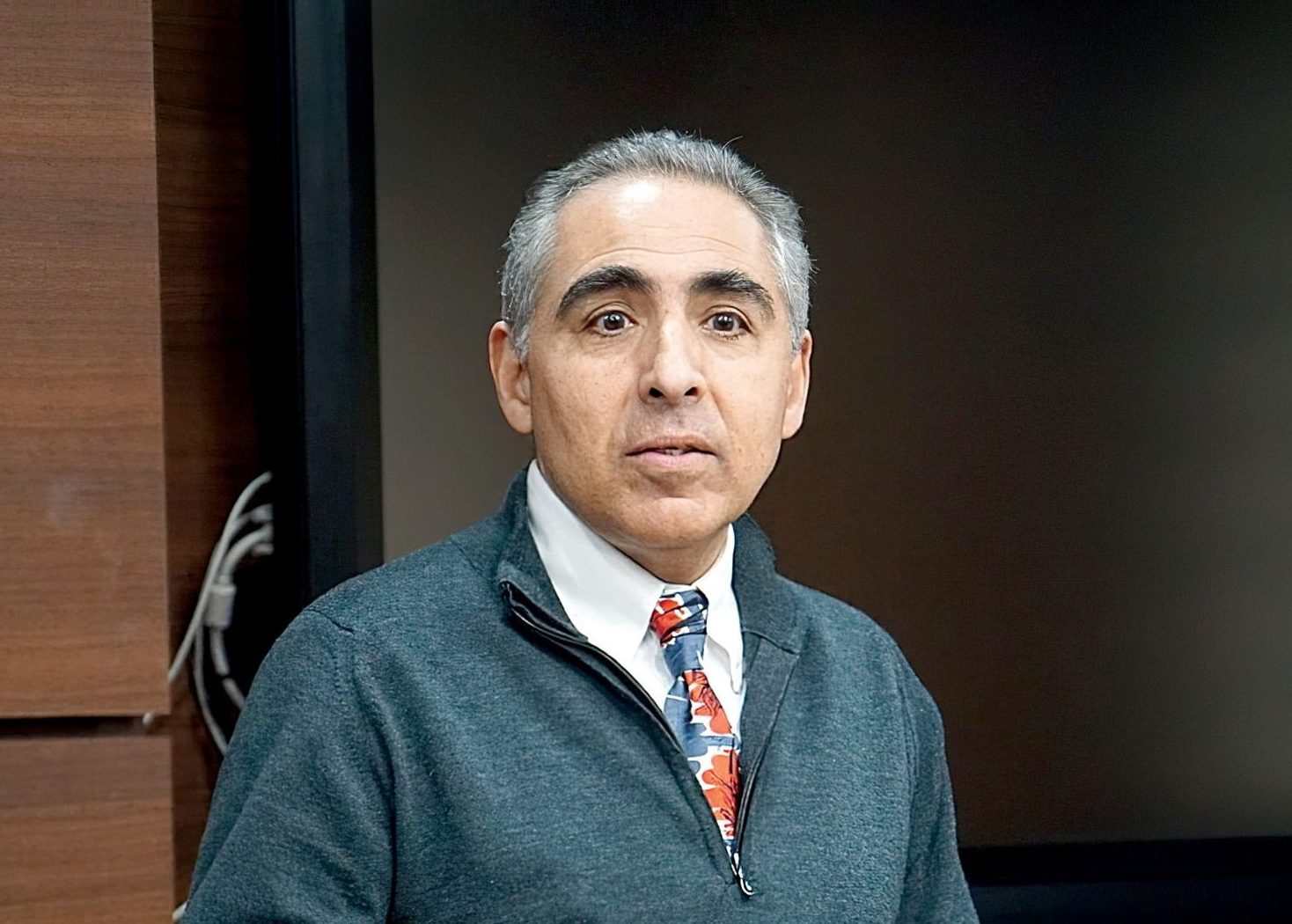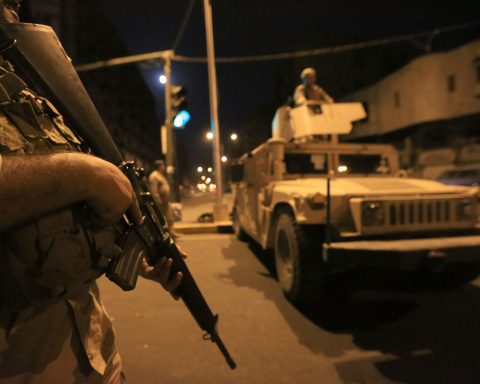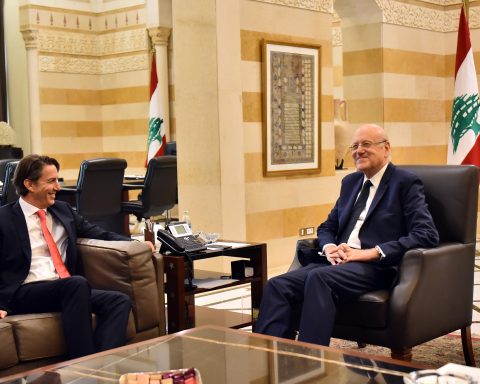Abdennour Toumi: What is the thing that caught your interest the most about the MENA region, politically and geopolitically, in the 21st century evolution?
Prof. Anoush Ehteshami: There have been publications written about the twentieth century, and much of the twentieth century was described as the shortest century because so much happened in such a short period of time. For example, two World Wars that shaped the rest of the century happened during this period. I fear that within this century, we have already seen as much as we might have expected for the next hundred years, regionally and globally. Who would have thought that the most dormant region in the first decade of the 21st century would explode in the second decade and create a landscape full of transition? Sadly, very few of the transitions have a positive tone to them. We have important countries like Syria, Libya, Tunisia, and Egypt, which have become shells of their former selves, and it is not that the chaos in them was created because of the Arab uprisings, but I think these countries were already hollowing out. They were already the shadow of states, and the push of the masses during the protests exposed their hollowness, and these have left massive vacuums in the region.
In the twentieth century we did not dream of talking about Iraq and Syria, these great Islamic civilizations, as failing states and yet look at them both. They have between them over a thousand years of civilization and here they are, bent on their knees. Who would have thought the mother of the Arab region, Egypt, would have a military officer following its symbolic revolutions of 2011, who has crushed the spirit of Egypt, and has squeezed out all of its vibrance? Algeria, which the world is not paying significant attention on, is going through a major struggle between an old state leadership and a young, aspiring and eager population, who wants change.
The notion of pan-Arabism, which took shape in the early twentieth century, has since dissipated from the beginning of the second decade of the 21st century. This is a major transformation that is taking place, but to be honest, we have no idea what is going to come next because on top of all this, not only are there civil wars and crumbling states, but there is also a pandemic. This, of course, affects all categories of society.
Abdennour Toumi: How do you evaluate the region’s socio-political imperatives in the aftermath of the first wave of the Arab Spring, and how do you assess the second wave of the Arab Uprisings seen today?
Prof. Anoush Ehteshami: The first point I want to address is that the elites of the region have not learned their lessons from the first uprisings. They have not responded constructively to the cries of millions of people on their march to end corruption and elitism. Instead, all of them continue to behave in a way as if the uprisings were incidental rather than structural. The second problem is that they have learned the wrong lessons from the uprisings themselves. Rather than seeing the protests as a cry and demand for food, work and a prosperous future, they understood the protests as a security concern.
Abdennour Toumi: In your opinion, which country has made the most effort for transformation in the countries of the Middle East and North Africa, within the context of the first and second waves of the Arab Spring?
Prof. Anoush Ehteshami: I have to take my hat off to the people of Lebanon. I think they have suffered more than any other country in their vicinity. They have seen governments drain the state of its resources, and they have seen their savings disappear overnight. Furthermore, they have seen militias take control of the state and strangle their ability to exercise power through the electoral process. It is also crucial to not forget Lebanon’s 2005 revolution, when the Lebanese people marched in hundreds of thousands with the intention of wanting their freedom from Syria and from other external actors. They did so again in 2009, and in 2020. Their resilience is remarkable, and they have thrived and produced culturally while doing so.
Abdennour Toumi: What do you think will Joe Biden’s Middle East policy be like? Will he continue the traditional policies of previous Democrat presidents like Clinton and Obama, or will he implement a different policy? What do you think?
Prof. Anoush Ehteshami: I think he will continue the policies of his predecessors in the region. So, he will maintain close ties with Egypt and Israel but in a modified form. Unlike Trump, who completely pushed aside the Palestinians, Biden will take the voice of the Palestinians seriously. With Egypt, I think the US’ military support will continue, though he will place restrictions and conditionalities on Egypt.
With regards to Saudi Arabia, I think Biden will review Trump’s policies towards the Kingdom because his team regards the Yemen war as completely unnecessary and wants it to end as quickly as possible. In fact, they could hold the Saudis responsible for bringing the war to an end. In terms of Turkey, the issue of military ties with Russia will be the most important subject on their radar, because the S-300s/S-400s are not just an American issue but a NATO issue. However, Biden will not ignore Turkey to maintain the internal cohesiveness of NATO.
Of course, the biggest elephant in the room will be Iran and what they are going to do with regards to Tehran. Re-entering the JCPOA might sound like a forward but it is not an easy task because Iranians are not going to accept anything from the US President anymore. They will want assurances, not bilaterally, but in a multilateral sense.
Abdennour Toumi: What is your assessment of the role of Turkey, a country that has increased its influence in the region, in the Eastern Mediterranean, Syria, and North Africa?
Prof. Anoush Ehteshami: I think Turkey’s rise is a result of the fragmentation cause by the Arab Spring, which has created permissive spaces for itself and others to act in correlation to its foreign policy interests. This is not just the case for Turkey. Iran also saw this opportunity in forming alliances and extending its influence in the wider region through ways that were not possible before. So, this notion of “neo-Ottomanism” that Turkey is being accused of is, in reality, is a reactive response than a pre-emptive and ideological process. The AK Party has never hidden its interest to bolster the role of its Muslim periphery in the region. This is not the same as being hegemonic. So, there is a danger of putting all of these issues and concepts together. We have to be aware of the roots of change. Some are structural, some are accidental, and once this historical process begins, it is not possible to terminate it immediately. It is like running water. Water will continue to flow until it finds its destination. So, we have to look at these changes as a historical process.
In this regard, Turkey is partly rediscovering its legacy. However, as it does this, it positions itself in competition with a range of other actors and interacts with different groups of alliances. From this perspective, it can be analyzed that it is not just Turkey which is taking advantage of the processes in the post-Arab Spring, but it is also Israel and Iran. Could we have ever thought that Egypt, under Nasser or Mubarak, the UAE, Morocco or Bahrain would restore relations with Israel? It would have been unthinkable. It is because there is no longer an Arab centralism that maintains and governs the principles of pan-Arabism. This has developed not in an ideological framework but in a practical sense.
Abdennour Toumi: How do you interpret the normalization process some Arab states have taken with Israel?
Prof. Anoush Ehteshami: Previously, before the Arab Spring, any discussion of a peaceful approach towards Israel had to have the approval of Syria. Nothing would have happened without first consulting with Syria. However, that Syria is no longer present, and this is why small states like Bahrain can shake hands with Israel and suffer absolutely no consequences from it.
It is a fact that the Arab Spring has weakened the unity of the Arab country. Now, any country can do whatever it wants, and they can pick and choose who they want to have relations with. Of course, this was facilitated by the guarantee of US. Peace is crucial for the region, so long as it is a fair peace that takes Palestinian independence into account. Israel should establish bilateral relations with countries by regarding them as independent states.
In addition, the international community should closely follow the Israel-Palestine dispute for the peace and security of the Levant, as it is not possible to implement a lasting peace in the region without doing so.














